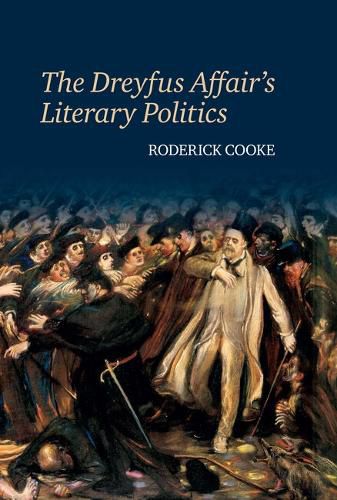The Dreyfus Affair's Literary Politics
Roderick Cooke

The Dreyfus Affair’s Literary Politics
Roderick Cooke
The Dreyfus Affair's Literary Politics offers a new interpretation of writers' political engagements in the crisis that ended the French nineteenth century, following the wrongful treason conviction of Captain Alfred Dreyfus. Emile Zola and three writers connected to him - Ferdinand Brunetiere, Henry Ceard and Saint-Georges de Bouhelier - drew on their affinities and antagonisms concerning Zola's naturalist fiction to shape their political discourse in the Dreyfus Affair. Zola and Bouhelier were Dreyfusard, Brunetiere and Ceard anti-Dreyfusard, yet in each case they transformed a vision of what literature should be into arguments about French national identity, the proper relationship between literary and political thought, and the tensions between individual rights and raison d'etat. Developing a method entitled 'microhistories of ideas,' Cooke shows that a longitudinal approach to each writer's career yields a set of central unit-ideas that reappear in the new, emotive context of the Affair. Through close readings of material such as pamphlets, newspaper columns and aesthetic essays, the significance of often ephemeral writing to the larger questions of intellectual history - and to the outcome of the Dreyfus Affair itself - becomes clear.
This item is not currently in-stock. It can be ordered online and is expected to ship in approx 2 weeks
Our stock data is updated periodically, and availability may change throughout the day for in-demand items. Please call the relevant shop for the most current stock information. Prices are subject to change without notice.
Sign in or become a Readings Member to add this title to a wishlist.


